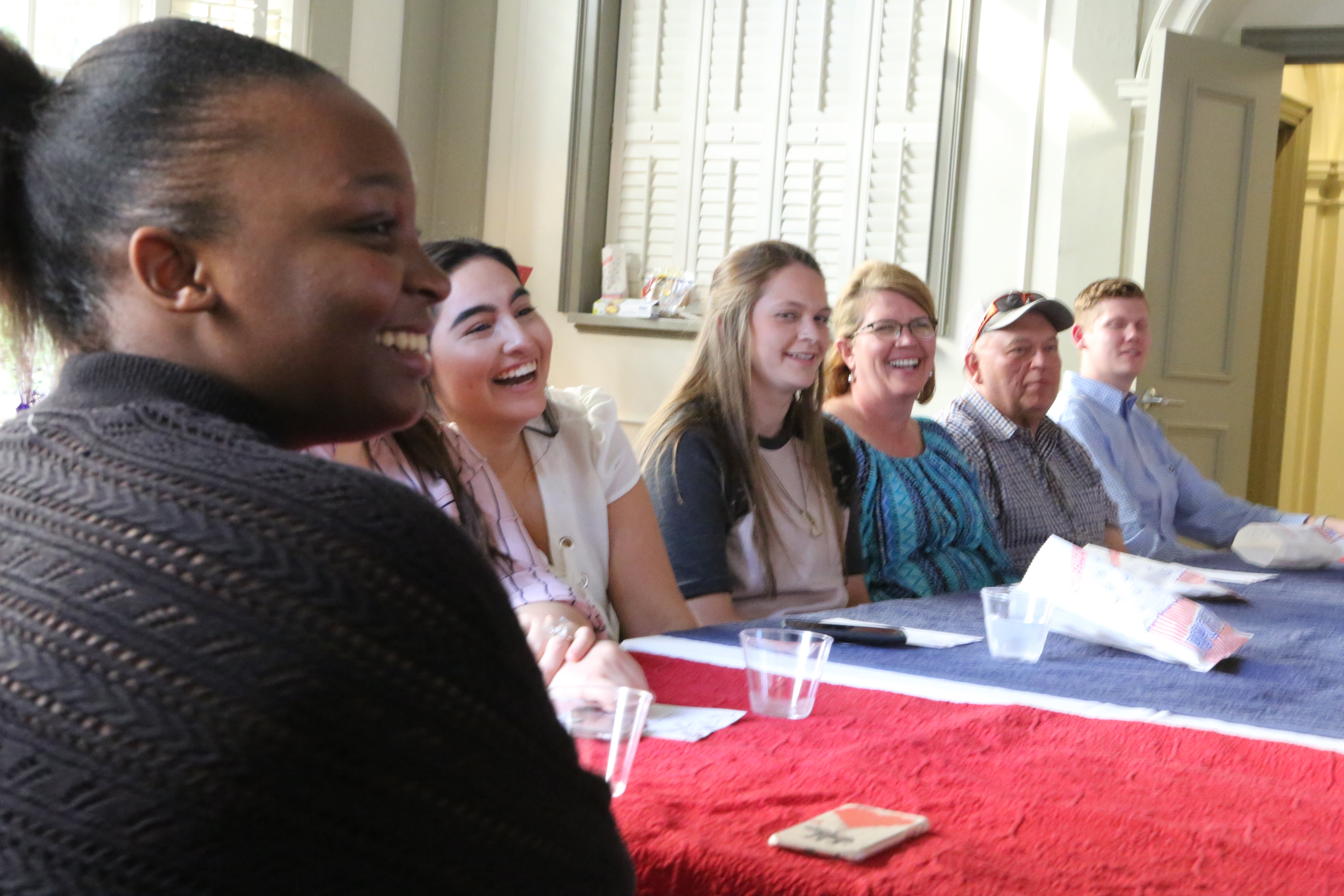This year the Tennessee Justice Center launched a Student Ambassador Program to engage young people in our Insure Our Kids Campaign. This campaign seeks to get every eligible child in Tennessee enrolled in health insurance coverage by educating the community and providing enrollment assistance.
To find and enroll those uninsured students, we turned to their peers. We brought together a community of publicly insured, privately insured, and uninsured high school students in Tennessee. Our outreach efforts included contacting afterschool programs, clergy, and teachers. To apply, students had to answer the question: How has healthcare played a role in your life and why do you think it is an important social justice issue?
Students’ responses varied from their use of TennCare (Tennessee’s Medicaid program) to get glasses, to play a sport, or to receive mental health supports. Others spoke about the complexity of navigating private insurance when their parent had cancer. All applicants were girls and represented Tennessee’s geographic, racial, and socio-economic diversity, yet they all had one thing in common – they believed healthcare was an important issue.
After our first year, we have made initial inroads by successfully educating high schoolers about health insurance access and coverage options. By engaging high schoolers as essential leaders, we believed we could make health insurance a topic of interest and reduce the number of uninsured people in their schools. To begin the process, ambassadors set out to share their knowledge with their peers through good old-fashioned tabling.
Two ambassadors set up a booth outside their cafeteria to screen their classmates on their eligibility for Cover Kids (Tennessee’s CHIP program) or TennCare. In a racially and socio-economically diverse high school with more than 2,000 students, they screened around 200 students in four days to determine if they were eligible for TennCare/CoverKids by asking them two questions: How many people are in your household and what is your monthly household income?
Some TJC staff had reservations that the high school students would not know their monthly household income, but most of them did. Based on their responses, the ambassadors referred to an income chart and determined if their classmates qualified for TennCare or CoverKids. The ambassadors wrote down which program the student was eligible for on a form that also told them they could apply for insurance at healthcare.gov or call the TJC office if they had questions.
As part of the screening the ambassadors also asked the students to fill out a survey that asked their grade, race, sex, and what type of insurance they had. The ambassadors were surprised that 8 percent of their classmates were uninsured, double the state-wide uninsured rate for children. About three out of every five of those uninsured children would be eligible for Cover Kids or TennCare. Every person the ambassadors spoke to who was uninsured was eligible for public health insurance.
This pilot project demonstrates that student ambassadors can effectively target their peers to reduce the number of uninsured children and teens in their high school.
This pilot project demonstrates that student ambassadors can effectively target their peers to reduce the number of uninsured children and teens in their high school. Each of them understands the unique challenges their families and their friends’ families face when trying to get health insurance. Over the past few months, TJC developed the ambassadors’ advocacy, critical thinking, and leadership skills on Medicaid issues. Educating high schoolers on Medicaid/CHIP as important safety net programs improves their own personal health insurance literacy, while equipping them with the skills they need to be effective healthcare advocates.
So, what’s next? During this 2018-2019 school year, ambassadors will help recruit other teens to participate in the program. We want to expand and double the size of the ambassador cohort through more targeted outreach to students. We are focusing on counties with the highest uninsured rates, and we are directly contacting high school principals in those counties. The broader goal is to raise awareness that there are eligible, but uninsured children and teens by partnering with student and school leaders across Tennessee to create a plan to insure every child.
Kinika Young and Dennisse Calle are with the Tennessee Justice Center.


